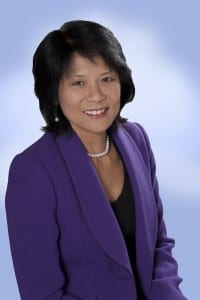Toronto’s politics

Right versus Left: Fight!
Article: Taras Matkovsky – Contributor
[dropcaps round=”no”]B[/dropcaps]eing a politics junkie, I always find time to follow the Toronto political scene. I am addicted to watching Rob Ford’s antics like – well, you know. But in all seriousness, I do hope that Toronto will vote Ford out of office this Oct. 27. And there certainly seems to be a lot of competition coming. As of writing this piece, up to 10 contenders have registered for the race. Aside from Mayor Ford, they range from respected businessman and conservative politician John Tory to veteran NDP politician Olivia Chow to a dominatrix named Carlie Ritch. Current polls suggest that either Chow or Tory have the best chance to unseat Ford. And yet, I feel that nothing will fundamentally change in Toronto in terms of enacted policies.
To understand Rob Ford, you have to understand that Toronto is a divided city. What is now Toronto used to be six different cities until Premier Mike Harris merged them all in 1998. One of those former cities, Etobicoke, is where Rob Ford and his family have their power base. In her book, Crazy Town: The Rob Ford Story, Robyn Doolittle remarks that those suburban cities had, and still have, a more conservative culture than the old City of Toronto. In the first election after the amalgamation, Barbara Hall, described as a “theatre-loving former lawyer and New Democrat,” was defeated by Mel Lastman, a millionaire based in the suburb of North York who advocated for tax freezes. And while the new city elected David Miller, a downtown-based left-wing mayor, in 2003, he quickly lost popular support when he conceded to union demands for high wages during a garbage collector strike; that was what gave Rob Ford an opening. To be sure, Ford’s conservatism isn’t as popular as it once was. But the conservative agenda in general- lowering taxes and cutting spending- still retains a degree of popularity.
Therefore, expect the left-winger, Olivia Chow, to go out of her way to build a ‘sober’ fiscal reputation. And expect Rob Ford’s criticisms of her to be taken seriously by Chow and the media, even though he himself has raised Toronto’s debt levels and increased spending. This Toronto election could be a showcase for the continued impotence of the modern left in articulating an alternate vision for government and society where taxes aren’t a burden and government is a force for good.
I have read many Internet comments on Ford stories, and the pro-Ford comments scare me. Essentially, they boil down to “so what if he did crack: he’s more honest than those lefty politicians.” This speaks to the failure of left-wing politicians so far, that they cannot inspire people to dump an obviously flawed mayor as long as he promises low taxes. You might think I base too much on the ideas found in Internet comments.
However, in recent history, it has been a trend that left-wing parties try to act in a right-wing manner in order to appear fiscally responsible. Just recently, the Toronto Star reported that Ontario Liberal Premier Kathleen Wynne backed down on a plan to raise taxes on the middle-class to fund transit in the Greater Toronto Area. Sixty years ago, you had right-wing parties pledging to keep taxes on upper-income brackets at 92%. Ford’s victory is the logical extension of the low taxes mantra of the eighties, and so far, no left-wing politician has challenged it. Therefore, I predict that while the style of Toronto politics might get toned down, the substance will largely remain the same.
[button style=”e.g. solid, border” size=”e.g. small, medium, big” link=”” target=””]Image: oliviachow.ca[/button]









